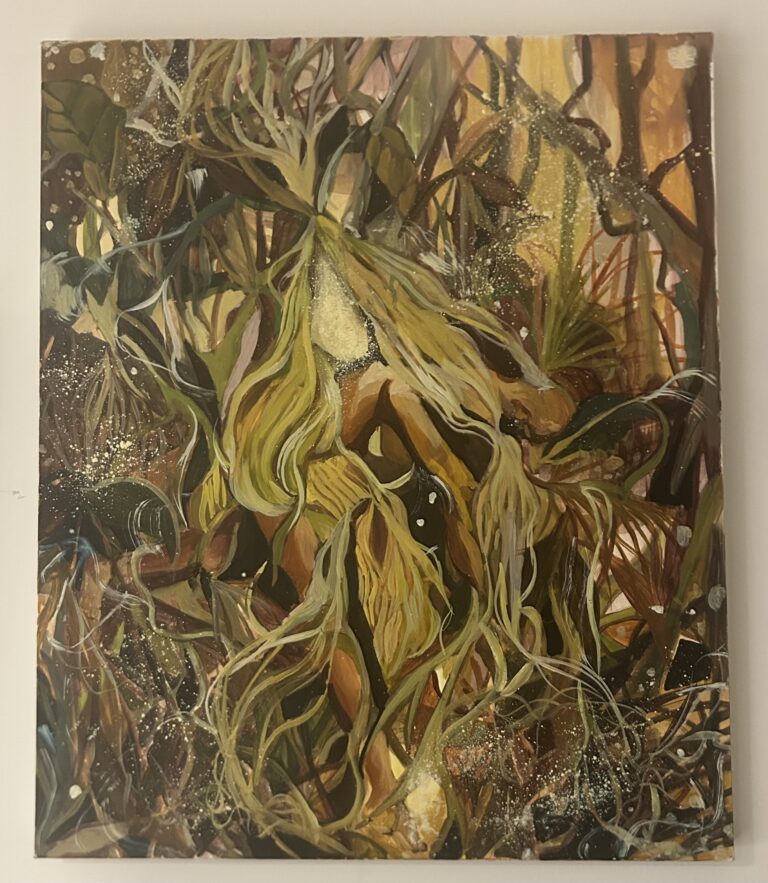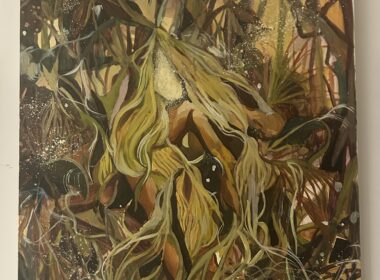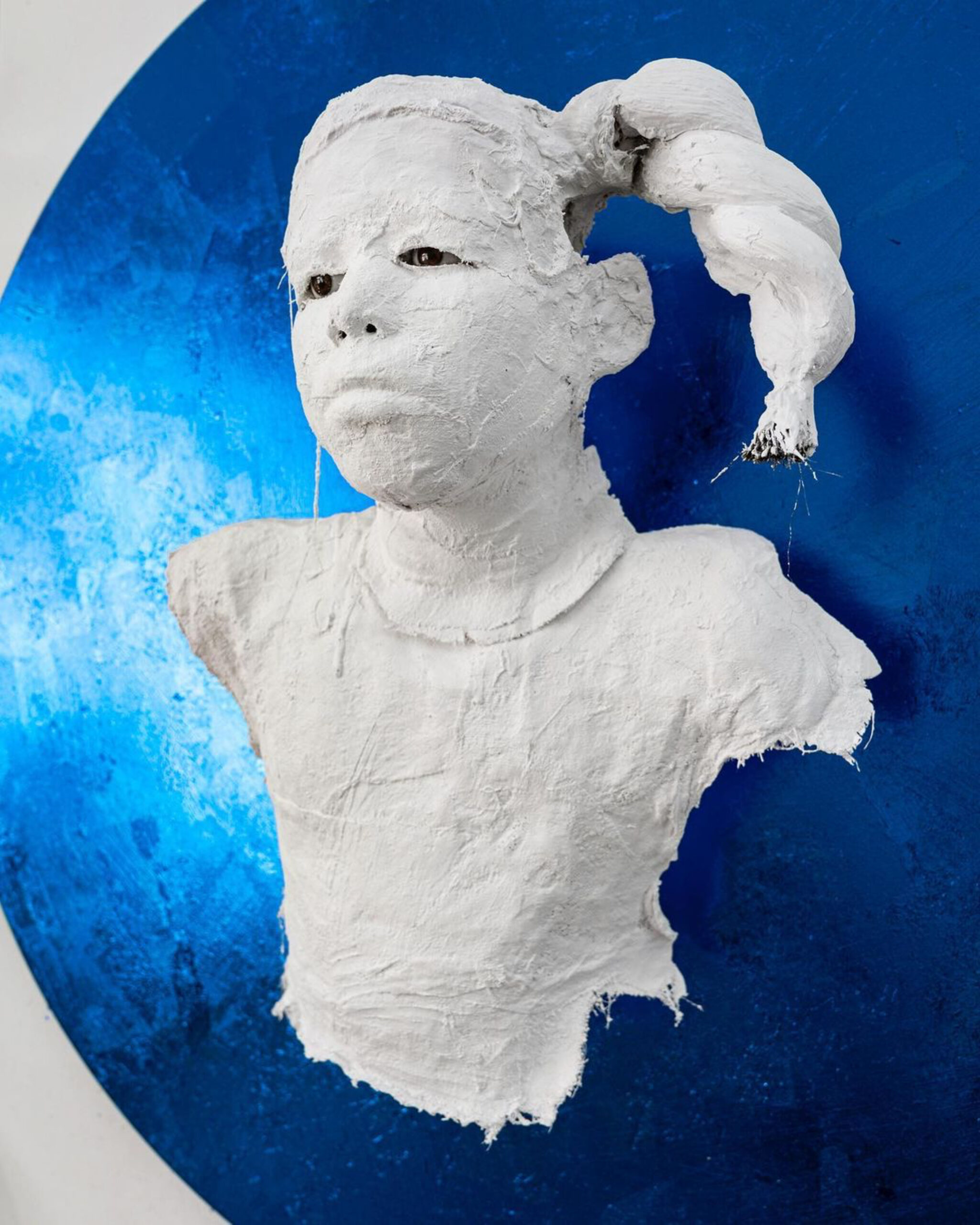By April Dobbins
In 2016, Chicago musician Aquil Charlton founded Mobile Music Box to teach intergenerational groups how to make instruments from recycled materials to encourage environmental consciousness, particularly in communities of color. Through Mobile Music Box, Charlton hopes to foster an appreciation for music and the natural world in his city.
Last fall, Charlton was one of nine artists awarded a Threewalls Rad Lab+Outside the Walls Fellowship. Threewalls is a Black-led nonprofit organization providing support and visibility for artists of color in Chicago. Program fellows spend a year “researching, developing and testing an idea that addresses a racial justice issue pertinent to their community.” Charlton is utilizing the fellowship to continue music education in underrepresented communities.
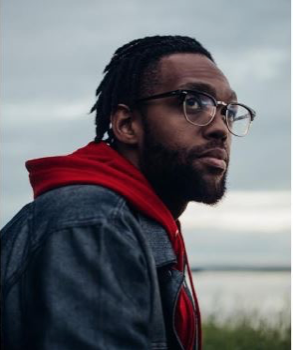
April Dobbins (AD): Tell me more about Mobile Music Box and how you came to do this work.
Aquil Charlton (AC): Mobile Music Box came to me as a way to share my love for music and reduce as many barriers to entry as possible, including access to formal instruments, training or electricity. I envisioned a cart full of recycled materials and craft supplies that I would hitch to my bicycle, take to public spaces, and use to engage people through the creation of simple musical instruments. I see this project as a potential traveling art and sound installation from which I can host interactive jam sessions.
By using widely accessible materials and simple activities, I can reach as many types of people as possible regardless of age or experience. Keeping the Mobile Music Box local, moving by bicycle, and using recycled materials are really about me respecting the communities. I want to keep my footprint as small as possible and encourage discussion about environmental consciousness.
AD: What are the particular challenges facing your communities, and what are those communities like?
AC: Coming from the Kenwood community in Chicago, biking range for me means that I primarily reach the south and southwest sides of the city. Many of the places that I bike to have beautiful public gathering areas that are rich with history and vibrant energy. I often bring portable recording and sampling equipment and invite people to sing or make up a melody that we can build upon and accompany with self-made instruments. These areas have also experienced structural economic divestment, neglect from city services, and pollution from factories and power plants. I hope to encourage more demand for environmental justice and investment from the city and each other.
AD: Your RaD Lab+Outside the Walls project explores ways for people to access music-making and instrument-making tools and addresses how environmental racism impacts this community. Can you tell me a little more about your project? What does it mean to you personally?
AC: My project involves participatory music and instrument-making using recycled and found materials. I would like to activate an interactive mobile sound installation made of recycled material by engaging people in the area to make sounds with it and join me in improvising rhythms and patterns, amplified through a portable recording and production setup. People will be encouraged to participate in any way they choose, through the installation itself, or directly toward a shotgun mic. I will also create videos that encourage people to submit sounds they make with their self-made instruments, through their phone or online, and interactive tools for making music with those sounds.
It is very important that my projects are participatory, because I believe that creativity can be healing and generative, opening pathways for new ideas and vision. I hope that by engaging people in creative activities that also align with the value of environmental sustainability, they generate further interest and advocacy in my community.
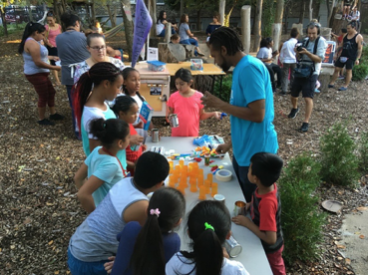
AD: Your work centers music and explores environmental racism. Have you found fertile ground at this intersection?
AC: Music is a great tool for sharing ideas, and gathering people to share in making sounds and rhythms together engages us on a basic human level. These activities alone have presented powerful opportunities to activate public spaces and encourage consciousness about their preservation as well as dialogue about repurposing and recycling materials. As a member of Mobilize Creative Collaborative, I collaborate with local parks to host outdoor activities, and support environmental justice groups by leading activities and music for demonstrations and community awareness events.
AD: Has the nature of your work shifted in light of the pandemic?
AC: Since the onset of the pandemic, I have had to take a different look at the role of direct physical engagement with people in my practice. I have since been working on ways to incorporate virtual activities, new approaches to using public space, and creating safe ways for people to engage in person or remotely.
AD: What have you learned that you did not know when you first started this work?
AC: Since first launching the Mobile Music Box, I have learned that people tend to think simple music and instrument-making activities are mostly for children. My intention is for as many types of people to gather and participate as possible, inclusive of all ages and ability. Through the RaD Lab fellowship, I am learning more about how my project might adapt to include people with disabilities and for social distancing.
For more information on Aquil Charlton and Mobile Music Box, visit him on Instagram at
@mobilemusicbox.
April Dobbins is a writer and filmmaker based in Miami. Her work has appeared in a number of publications, including the Miami New Times, Philadelphia City Paper, and Harvard University’s Transition magazine. Her films have been supported by the Sundance Institute, International Documentary Association, Firelight Media, ITVS, Fork Films, Oolite Arts, and the Southern Documentary Fund. She is a graduate student at Harvard University.
